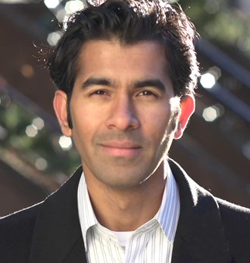Our founder, Shyam K. Iyer, is often asked to share his expertise on everything from starting a nonprofit to managing a team. SKI Charities has been in the news so often lately that we decided to put all Shyam’s best pieces of advice in one place:
On the book that taught him to take risks:
“Losing My Virginity, by Richard Branson taught me early on to enjoy taking risks and that determination is the sole factor in achieving success.”
Read the full story on fupping.com.
On the importance of giving collaborators full autonomy:
“The key skill to collaborating successfully is the ability to share decision-making and encourage true autonomy with the understanding that long-term progress will be predominantly driven by participants closest to their task.”
Read the full story on the Filestage blog.
On engaging the organization at every level:
“When a business begins, it’s like a speedboat—quick and easy to maneuver. But as time goes on, that sassy little speedboat can be slowed down by people and processes, making it feel more like a battleship. If that’s happening at your organization, Shyam Krishna Iyer, founder of SKI Charities, suggests that you encourage autonomy at all levels of the organization to speed up innovation.”
On why he started SKIC and his advice for entrepreneurs:
“When I first contemplated SKI Charities I was faced with a high degree of skepticism. Most thought why take a risk in a country like Zimbabwe and others felt if the idea was worthwhile it would already have been done. These are fair challenges so I set out to take a chance by building a small but dedicated team and self-financing the project. Eight years later hundreds of families have benefitted at our locations.”
Read the full story on Ideamensch.
On delegating to empowerment:
“As a social entrepreneur, I have learned to hire and empower staff and beneficiaries from the community being served. While a founder may drive early success, the capacity to delegate local level ownership and buy-in will determine the success of any project or enterprise.”
Read the full story on carolroth.com.
On the biggest challenges he faces today:
“Our biggest challenge right now is the economic uncertainty that is prevalent in the overseas locations we operate. Frontier regions give our organisation the golden opportunity to reach beneficiaries who would otherwise be forgotten. However this same instability provides a challenge to us in navigating and managing so much uncertainty.”



